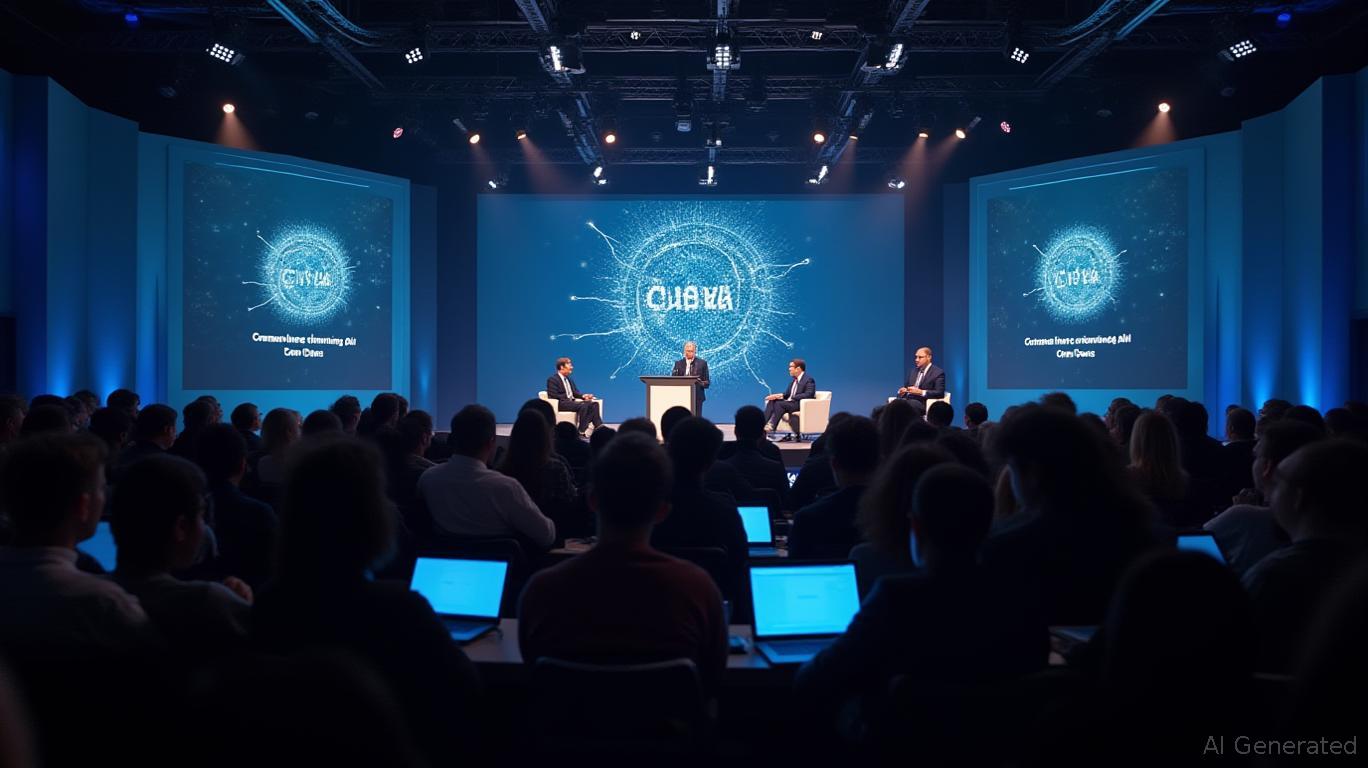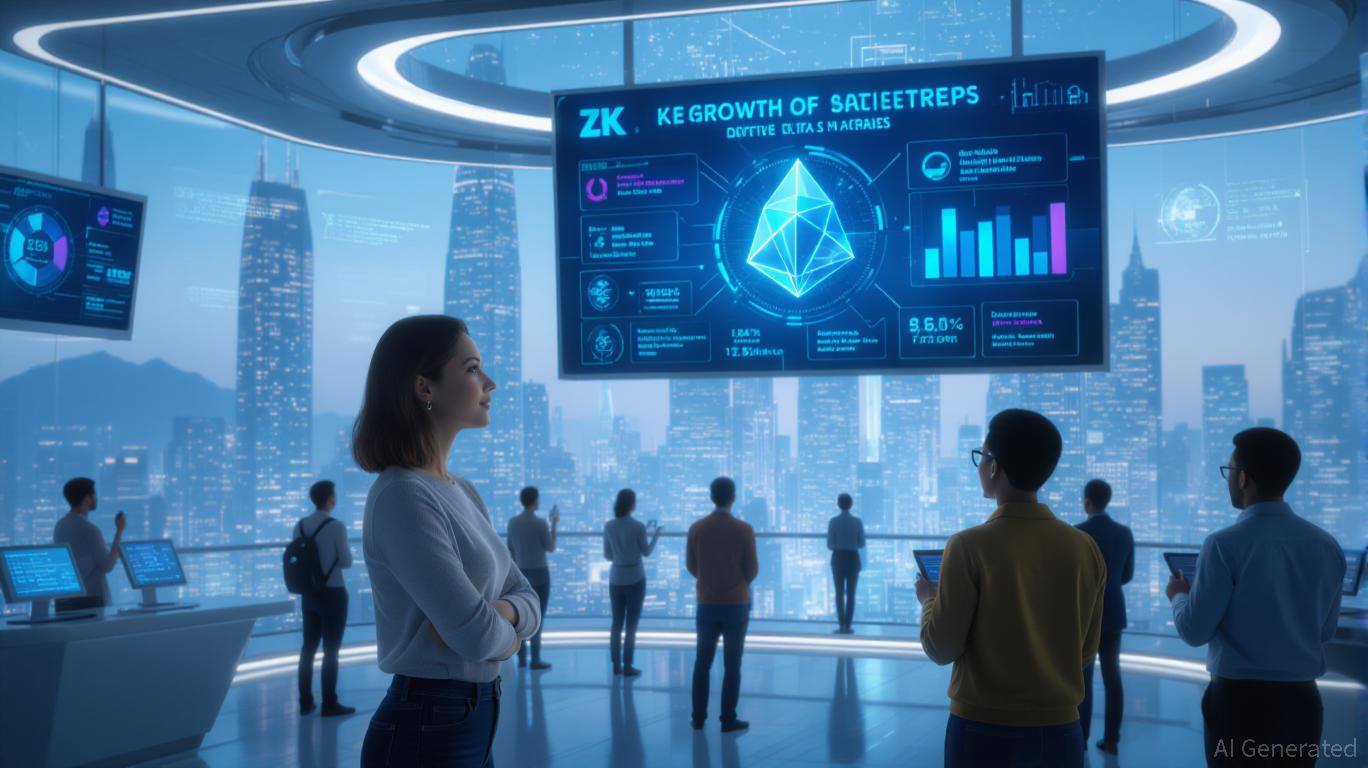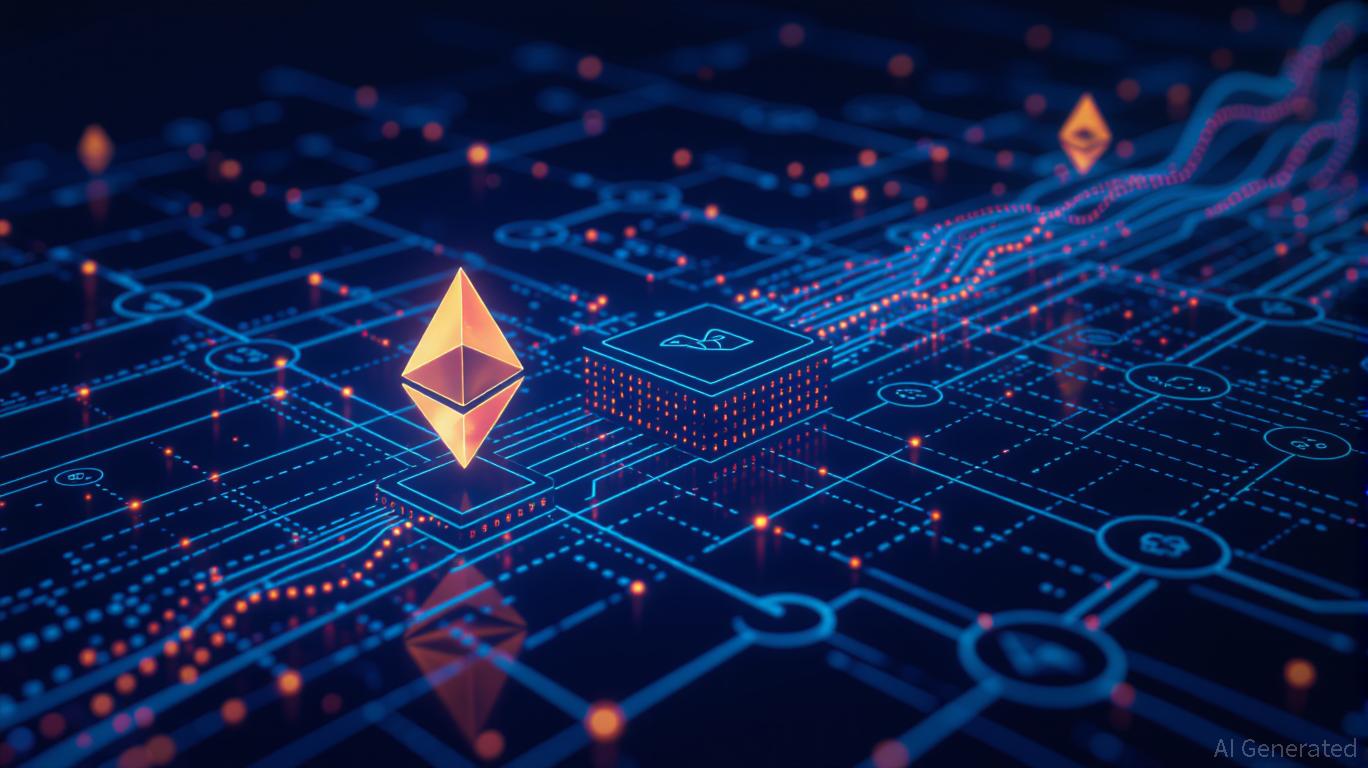Open-Source AI Movement Faces Resistance from Profit-Oriented Tech Corporations
- Vitalik Buterin advocates open-source autonomous driving to boost innovation and safety, challenging profit-driven tech giants. - AI stocks like C3.ai (-2.96%) underperform as Microsoft and NVIDIA gain traction through proprietary AI hardware and OpenAI partnerships. - OpenAI's potential IPO and $11.6B 2025 revenue projections highlight tensions between non-profit models and commercialization, amid copyright lawsuits. - Market volatility (84% call/79% put implied volatility) reflects uncertainty over AI'
The movement toward open-source platforms in the field of autonomous vehicles is gaining momentum, with

Recent swings in AI stock prices highlight how sensitive the industry is to both technological breakthroughs and investor attitudes. C3.ai Inc. (AI), a notable name in enterprise AI, experienced a 2.96% drop to $17.03 on October 17, 2025, lagging behind competitors such as
The conversation about open-source AI is expanding beyond self-driving cars, with OpenAI's possible IPO fueling debates about openness and profitability. OpenAI, the private research group behind ChatGPT and GPT-4, uses a "capped-profit" approach and hasn't set an IPO date. Still, some reports point to a potential public offering within two years, according to Capital.com. Should OpenAI go public, its valuation may depend on factors like revenue growth—expected to reach $11.6 billion by 2025—driven by ChatGPT Plus subscriptions, enterprise AI licensing, and its partnership with Microsoft, as Capital.com also notes. Microsoft's integration of OpenAI's technology into Azure and its $500 billion Stargate Project, a collaboration with SoftBank, Oracle, and NVIDIA, further cements its leadership in the AI sector.
Buterin's support for open-source autonomous vehicle technology reflects a wider industry shift toward making AI development more accessible. However, OpenAI's non-profit model stands in contrast to the profit-oriented approaches of companies like C3.ai and NVIDIA, which depend on proprietary solutions. NVIDIA, for example, has seen its shares climb due to strong demand for its GPUs in AI training, while C3.ai's stock has struggled despite its enterprise AI focus, as highlighted by MarketWatch.
Regulation is another key factor. OpenAI is currently facing a copyright lawsuit related to its data practices, and broader worries about AI safety and regulatory compliance could impact its IPO prospects, according to Capital.com. At the same time, rivals such as Palantir Technologies and ServiceNow are growing their government AI contracts, signaling a move toward specialized uses in defense and public sector initiatives, as reported by a
For those investing in AI, the sector presents both risks and opportunities. High implied volatility in the options market—84% for AI call options and 79% for puts—reflects uncertainty about future price trends, as described in a
As Buterin and other leaders push for open-source solutions, the balance between cooperation and commercialization is likely to shape the next stage of AI evolution. For now, the spotlight remains on financial outcomes, with organizations like OpenAI and Microsoft set to influence the industry's path—whether through public offerings, strategic partnerships, or regulatory developments.
Disclaimer: The content of this article solely reflects the author's opinion and does not represent the platform in any capacity. This article is not intended to serve as a reference for making investment decisions.
You may also like
Blackout period stock transactions reveal shortcomings in the Federal Reserve's ethics oversight
- Former Fed Governor Adriana Kugler violated ethics rules by trading stocks during FOMC blackout periods in 2024, including a $100k–$250k Apple purchase. - Her spouse executed undisclosed trades in Cava Group and Southwest Airlines shares around restricted windows, breaching 2022 Fed policies banning individual stock holdings. - Kugler resigned in August 2024 after seeking denied waivers, leaving her seat vacant until replaced by Trump adviser Stephen Miran, highlighting partisan governance tensions. - OG

Ethereum Updates Today: The Supercycle Potential and Skeptics' Concerns
- Tom Lee argues Ethereum is entering a Bitcoin-like "supercycle," citing historical volatility as a path to mass adoption despite recent market turbulence. - Critics question Ethereum's unique value proposition, challenging its dominance against rivals and traditional finance integration. - Institutional adoption grows, with Harvard investing $443M in Bitcoin ETFs and MicroStrategy forecasting Bitcoin's $13T market cap by 2035. - Bitcoin's recent volatility contrasts with Ethereum's expanding Layer-2 netw

ZK Technology Experiences Price Spike: Advances in Blockchain Scalability and Signs of Institutional Embrace
- Zero-Knowledge (ZK) technology's valuation surged in 2025 due to blockchain scalability breakthroughs and institutional adoption, with ZK rollups achieving 15,000 TPS and $3.5B total value locked. - Platforms like ZKsync and StarkNet enabled real-world applications (tokenized assets, AI contracts) while Deutsche Bank and Sony adopted ZK for confidential settlements and digital rights management. - Ethereum's zkEVM integration and regulatory clarity via U.S. acts accelerated institutional trust, with proj

Vitalik Buterin Backs ZKsync: Igniting Ethereum Layer 2 Innovation and Ushering in the Next Era of DeFi
- Vitalik Buterin's endorsement of ZKsync's Atlas upgrade accelerates Ethereum's ZK-based scalability strategy, positioning ZKsync as a key DeFi infrastructure player. - The upgrade achieves 15,000+ TPS with near-zero fees via ZK Stack, enabling 30% stablecoin dominance and bridging Ethereum's L1-L2 liquidity gaps. - Institutional adoption surges as ZK token gains 50% post-endorsement, supported by $15B in ZK-related DeFi inflows and StarkNet's TVL tripling in Q4 2025. - Upcoming Fusaka upgrades (30,000 TP
